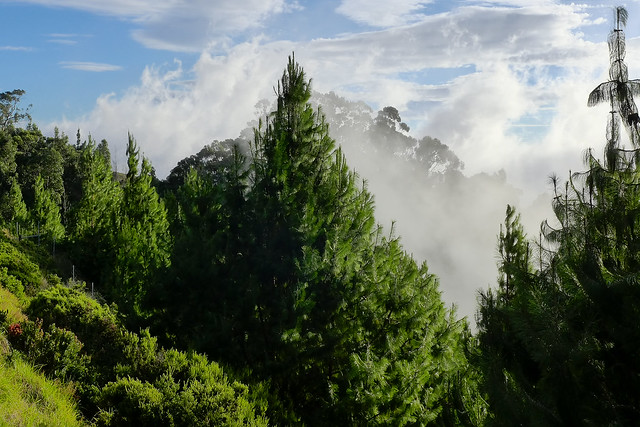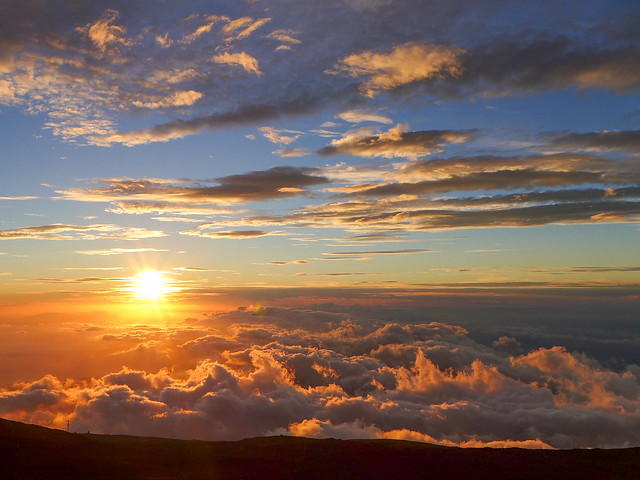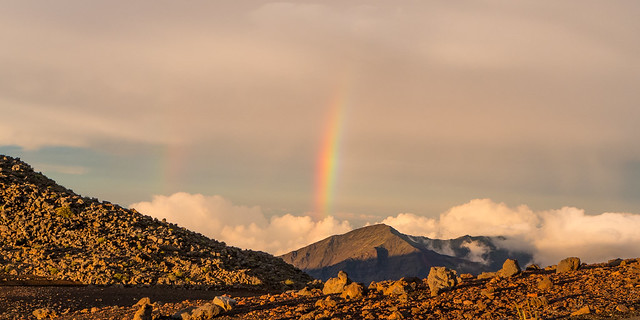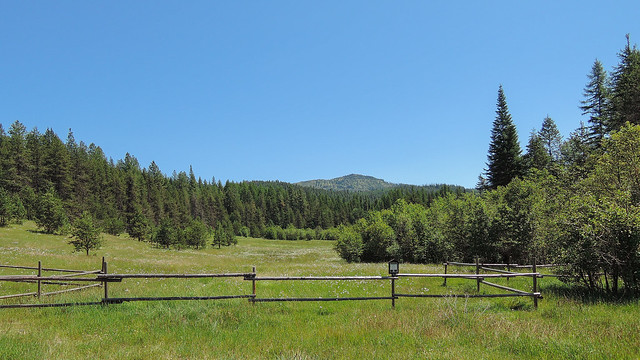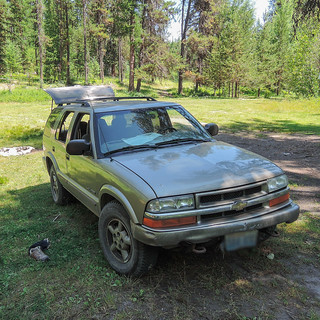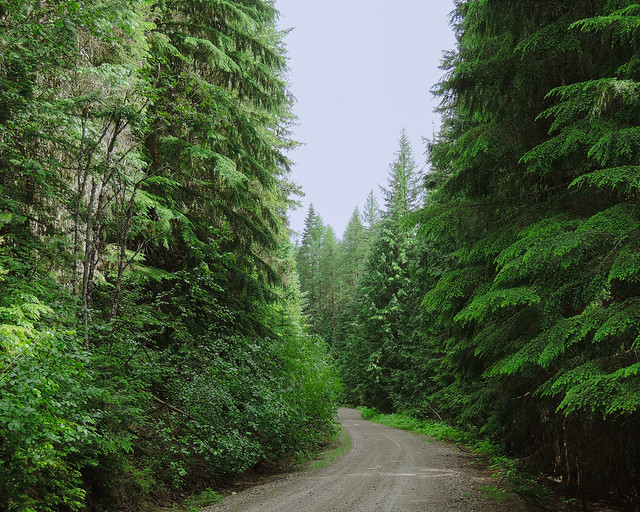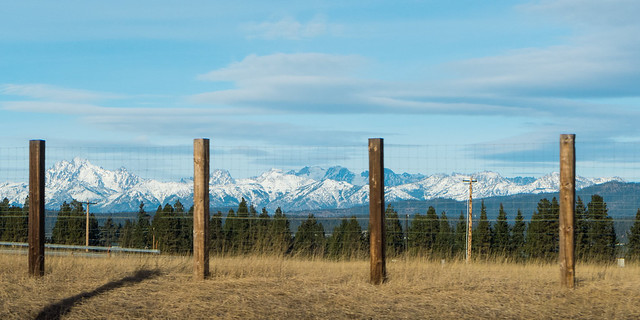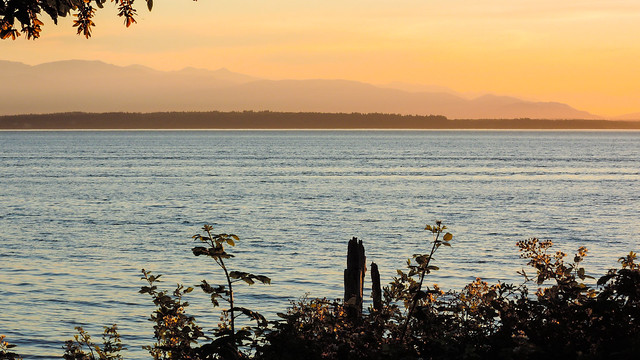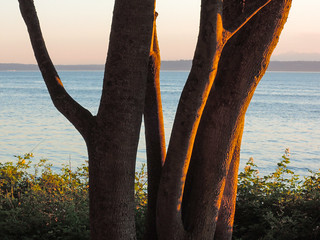Treat others the same way you want them to treat you. If you love those who love you, what credit is that to you? For even sinners love those who love them. If you do good to those who do good to you, what credit is that to you? For even sinners do the same. If you lend to those from whom you expect to receive, what credit is that to you? Even sinners lend to sinners in order to receive back the same amount. But love your enemies, and do good, and lend, expecting nothing in return; and your reward will be great, and you will be sons of the Most High; for He Himself is kind to ungrateful and evil men. Be merciful, just as your Father is merciful.
Do not judge, and you will not be judged; and do not condemn, and you will not be condemned; pardon, and you will be pardoned. Give, and it will be given to you. They will pour into your lap a good measure—pressed down, shaken together, and running over. For by your standard of measure it will be measured to you in return.
—Jesus of Nazareth, in The Gospel According to Luke (NASB)
One of the young people I know and admire who left the
Laestadian Lutheran Church before I did,
facing up to its vicious eternal threats and doing a reset on their
social lives, is a recent law school graduate named Emerson
Beishline. [Edit: Now a lawyer; congratulations on passing the bar!]
He left the church while I was still a struggling believer, and was an
understanding voice on the other end of the phone as I confronted my
doubts and those who judged me for expressing them.
Emerson attended a Laestadian cousin’s wedding this past weekend in
Minnesota. A preacher went up to him before leaving and, in front of
the entire extended family, told him that he prayed for Emerson often,
that he needed to come back to “God’s Kingdom” because he’s living a
life of sin. Then, right after this uninvited bit of sugar-coated
condemnation, the preacher warned Emerson that he’d better not be
saying bad things about the church.

Emerson and his girlfriend at
the Fête 50 Gala, Guthrie Theater
Sitting at a table trying to enjoy a family occasion, Emerson didn’t
even bother turning around to face the source of this hypocrisy and
arrogance. He coolly asked over his shoulder if he was being
accused of speaking ill of the church. This was denied, and Emerson
pointed out that he’d been falsely accused of deconverting many former
Laestadians. He didn’t appreciate being told how to live his life.
No less than three people that evening told him just how sad they were
about him, how they wished he had a believing spouse, and how sad it
was that he was living a life of sin, i.e., dating a non-Laestadian,
watching movies, listening to non-Laestadian music. These same people
warned him not to criticize the church. One person even went out of
her way to tell him that she loved him even though “you’re pretty
crazy” and “you should jump off a cliff.”
After taking this all in, here’s what Emerson did. It’s exactly the
kind of thing that will be needed in order for this abusive behavior to stop:
I took the floor and proceeded to point out the hypocrisy in telling
me how to live my “sad” and “crazy” life while bawling your eyes out
about criticisms I haven’t publicly repeated since shortly after I
left the church three years ago.
As dozens of kids and multiple sets of parents gathered in the room,
the discussion quickly moved into one focused on the doctrines and
beliefs of the church generally. They would come up with some stuff
about childlike faith, etc. and continue to tell me how sad my life
was. I would respectfully explain my positions about life and my
understanding of their doctrines. I responded to everything they
fired at me for the next hour.
He explained to them that he is an agnostic atheist, and what that
means. They were naturally horrified and incredulous that he could
possibly be happy with such a choice. When he said he found their
uninvited criticisms of his “ungodly” lifestyle offensive in light of
their admonishment to abstain from criticizing the church, they
responded that they were doing it from a place of love. Well, he’d
love to see everyone be an atheist, he said, but that would be
unnecessarily selfish. It is also a massive waste of time on
everyone’s part to pray for his soul, he pointed out, because
Luther’s predestination has already determined my fate. I told them
that I’m comforted with the knowledge that if an all-powerful
Lutheran God actually does exist, I have no power whatsoever to
determine the fate of my soul. By definition, God can’t be
all-powerful and all-knowing if my pathetic prayer could bring
“salvation” contrary to his original, ever-unchanging plan.
This excellent point, which Emerson mentioned to me long before I had
written much of anything about Laestadianism, is covered in
Section 4.7.2
of my first book, An Examination of the Pearl:
Often the opening prayer asks God to allow those have left the
fold–sometimes also the unbelieving world in general–to see the
light. I have always puzzled over this entreaty, given the claims
that God is both loving and omnipotent. Predestination means that God
has already sorted out the sheep and the goats from the beginning of
time. The preacher’s solemn intonation of a few words about the lost
is directed to the caring and concerned ears of the congregation, not
an omnipotent and omniscient God. On the other hand, if God isn’t
happy about all the damnation that is going on despite his desire
that all would be saved, is the public request of a preacher going to
give God an extra boost of divine power to correct the situation? I
can just picture him nodding his head with a thoughtful expression:
“You know, that guy down there in the suit has a point–let’s inspire
a few converts today.” Both cases are clearly nonsensical, and that
is a direct reflection of the dilemma of predestination versus free
will, discussed in
4.9.3.
In response to one question about whether or not he remembers how
sweet the forgiveness of sins felt, he said, “Yes, it felt very
powerful. However, we differ in our explanations of the source of that
power.” I can attest to this, too. In Laestadianism, you are judged
for a multitude of sins and then regularly hear a magic incantation
that promises to wipe away every last stain of guilt.
For a while, that is. It is an absolution-delivery system with no less
impact on the brain than the pulsatile nicotine-delivery system of a
cigarette. For me, its effect is so ingrained that I still feel a
slight glow of fuzzy relief when hearing the proclamation of
forgiveness in the recorded sermons to which I still listen at
bedtime. Obviously, there is no theological effect going on with me:
This is more or less
classical conditioning. I
am one of Pavlov’s dogs, salivating at hearing the bell of forgiveness
being preached.
There were inquiries about certain semi-public struggles of former
Laestadians, to which Emerson readily admitted that almost all
apostates have had major struggles leaving the church. He’s worked
through it on his own, he said, but everyone who has ever left the
church probably should seek counseling. He was, he said, “spiritually
damaged as a child”:
I feared hell like crazy. I feared that I would commit blasphemy. I
would wake up in the middle of the night as a child and find no
consolation in the gospel because as a five year-old kid I didn’t
understand what “name sins” were, and I thought I would go to hell
for some stupid sin. They turned and pointed to all of the little
children in the room and asked me if I thought these children were
damaged. I said “not yet, but when they do eventually leave, the
damage just manifests itself during the process of deconversion.”
They essentially accused me of being ungrateful to my parents who did
a very good job of raising me. I emphatically agreed that my parents
did a fantastic job raising me, but I made sure to explain that my
parents just didn’t know any better when it came to spiritual
issues. I said that this was society’s fault more than anything.
The bottom line, Emerson told his shocked audience, is that
you are required by your faith to think that I’m proud; that I think
too much. I’m not meek enough. My understanding is anything but
childlike in your minds. In contrast, I don’t think you care enough
about your doctrines and your religion. You don’t care enough because
you don’t ask questions when it’s blatantly obvious that your
doctrines are completely un-Laestadian. Laestadius wouldn’t recognize
you if he were alive today. That doesn’t signify to me an unchanging
church.
Nor, might I add, would Christ recognize them, either. At least not
the one who is supposed to have said the words in the epigraph at the
beginning of this essay.
I have heard many of these same sad experiences, from people who have
left the church and even from some who hesitate to judge those who
have left. This is not an institution that does as it would be done
unto, nor one at all hesitant to judge lest it be judged.
There is a positive note on which to end, though. Another
ex-Laestadian, Brett Salahub, says this sort of thing has never
happened to him:
Recently a believing couple who were very long-time friends from
Canada purposely stopped in to visit me here in Finland while they
are traveling around, after not seeing me for 5 years and they never
once brought up faith matters.
A year or two ago, another believing couple from the USA visited with
me, and they only asked me politely to explain where I stand on some
doctrinal matters and that was it. No challenges or telling me how
sad they were, and so forth.
It can be done, and it ought to be. Nobody is being led back into the
fold by the frowning piety of condemnation and condescension. We have
heard it all, found it unworthy of our belief for a hundred different
reasons, and acted accordingly. And Emerson has made it very clear
that any Laestadians who want to say how sad and pathetic his life is
had better be comfortable with taking it as much as they dish it
out. This is, he concludes memorably, “a two-way street. If you don’t
respect my right to an ungodly lifestyle, I don’t want to hear you
telling me that I can’t tell you exactly what I think about your
religion.”
———
Update, July 16, 2013: Here is a response by Emerson’s mother. All
I will add is that the love and respect Emerson and his family have
for each other has been very evident to me, and I’m happy to give her
a chance to express that along with various concerns about the
posting.
As Emerson’s mother, I feel compelled to write a post here. I will
preface it by saying that Emerson is loved very deeply by his family,
and Emerson in return has great love for his family as he has
expressed to me in so many ways. It is very difficult for me to
formulate my words here, as I fear potentially offending either
parties involved in this conversation. As a mother, and as any mother
will testify, my heart sorrows when my children hurt, and my heart
rejoices when my children are happy. So naturally my child’s hurt
burns deeply in my heart in any given situation.
Having said that, I will also acknowledge, and painfully so, that I am
deeply anguished and troubled that this type of deeply emotional and
personal conversation has been placed here in a public blog setting
for scrutiny by any number of individuals. I want to assure all
readers of this blog that our family is not without faults, for we say
things and do things that often may offend others even
unintentionally, or perhaps even offend others by not saying or doing
things that might be desired of us. I think this is the human
experience, especially in family settings, where conversations and
actions are not what one typically would present in a more public
setting.
Who of us feels that we act exactly the same in public as we do in
more personal family settings? Having said that, I don’t intend to
excuse hurtful words or behavior on either side of the issue. But I
really do feel that unfamiliar communication style and family dynamics
coupled with cultural variables that influence message delivery can
result in unfair scrutiny, thereby depicting our family as an entity
of hatred and intolerance. I hope no one comes away from reading about
our private family affairs here on this blog with a false impression like this.
In our family we have much love, deep-seated love in our hearts, such
that we sorrow and rejoice with one another like other families do. Of
course with variances in each individual’s decisions, choices and
belief structures our personal experiences of what produces joy and
sorrow are different from one another, but overall we all want the
best and much happiness and success for all of our beloved immediate
and extended family members. It troubles my heart and my soul very
deeply that a sorrowful experience in our family is posted here in an
unveiled attempt to intentionally propagate bad publicity and hurtful
commentary.
It is my heart’s deepest desire that we could all choose to live a
life of mutual respect and love. I would say especially to those who
are in the church that Jesus teaches us to love and forgive, and as
such it is our duty. To those who have left I would encourage you to
love and respect in return, even if sometimes it feels like an
insurmountable battle. I wish that all this hurtful dialogue could be
turned into something more constructive, and that we could remain on
loving and happy terms. Think how much that would decrease the angst
and pain and hurt and wounds for both parties. Let us have love and
respect, that is the good and decent human experience.
As I say to my children, take the high road and love and forgive, even
if the person does not see their own transgression. Why live life in
bitterness and pain? Why continue the battle that cannot be won? And I
will again reiterate here, that Emerson is loved most deeply by his
family. And I know, with great certainty, that Emerson deeply loves
his family despite our faults and failures, mistakes and
shortcomings. Let us have a new outlook on life here, one with peace,
love, forgiveness, tolerance, respect. Let us stop tearing one another
down and hurting and exploiting other people’s pains and
sorrows. Would this not be the right thing to do? Please, I want
anyone reading this blog to understand that our family has great and
deep and unfaltering love for Emerson and all of our family members.
And it is my heart’s sincere desire that I can also be that person of
whom I preach here: kind, respectful, tolerant, forgiving, gracious,
honorable. I ask any reader here who finds my comments offensive or
somehow reprehensible to forgive my grievances, and to carry me in
their hearts with peace.
Update, August 15, 2014: See my
positive review
of a presentation at the LLC’s 2014 Summer Services, which advocated
neighborly love and respect for others, even others of different
beliefs. It was a huge step up from the behavior Emerson had
encountered a year earlier.
———
For some further reading about the social issues ex-Laestadians have experienced, check out these older postings on the extoots blog:
Amazing Grace (2005, 40+ comments);
Delurk Thread (2007, 90+ comments);
Unbearable Loneliness—No More (2007, 190+ comments);
A Teacher’s Lament (2008, 25 comments);
Coping with Laestadian Social Situations (2008, 40 comments).
Emerson’s story is based on comments he made to me and a few others, adapted and reproduced here with his permission. Some of the material is quoted from him, some is his writing reworked into the third person, and some constitutes my own observations.
Scripture quotations taken from the NASB.


